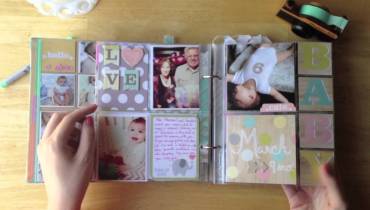Tax Season Made Easy: 5 Simple Ways to Track Your Finances Year-Round

Tracking your finances might sound like a chore, but it’s actually one of the best ways to prevent tax season from sneaking up on you.
“It doesn’t have to be complicated, either!” say the experts at ConvertBankStatement, an online platform that lets users convert bank statements into various formats. “From simple spreadsheets to receipt-saving tricks, there are plenty of easy ways to stay organized year-round.”
Here are five tips that will help you stay on top of your budget all year long:
1. Keep a Dedicated Accounts Spreadsheet
Whether you’re a fan of Excel, Google Sheets, or a budgeting app, a spreadsheet is a fantastic tool for monitoring your finances.
Start by creating columns for income, expenses, and savings. Set a weekly reminder to update it so you can watch your spending patterns and spot areas to save.
“For an added boost, consider color-coding categories like groceries, entertainment, or bills – it’s a visual trick that makes it even easier to see where your money goes,” says a spokesperson for ConvertBankStatement.
2. Hold on to Receipts (Digital or Physical)
Holding onto your receipts helps you track purchases and often prevents overcharges. To stay organized, keep a small envelope or folder for paper receipts and create a habit of snapping a picture of digital ones right after you make a purchase.
Apps like Expensify or a simple image folder on your phone or computer will keep these screenshots organized for easy reference.
Review your receipts weekly and log them into your spreadsheet to get a comprehensive view of your spending. This way, you’ll avoid surprise expenses and stay in control of your budget.
3. Review Bank and Credit Card Statements Monthly
Your bank and credit card statements are a valuable resource, as they capture all your transactions in one place. Take a few minutes each month to review them, watching for any unusual fees or subscriptions you forgot to cancel.
“Many banks can categorize your spending automatically, giving you a snapshot of where your money goes,” says the experts. “If your bank offers analytics, make the most of it; you’ll get insights like how much you spend on takeout or online shopping, which can help you adjust your habits as needed.”
4. Set Financial Reminders and Alerts
Most banking apps and budgeting tools allow you to set notifications to remind you to pay bills, or warn you when you have a low balance or are close to hitting a monthly spending limit. For instance, you can set a reminder for your rent or credit card due dates to avoid late fees.
“For extra motivation, consider setting alerts for when you hit a savings goal,” says ConvertBankStatement. “A little burst of encouragement feels great, and it can keep you moving forward toward even more saving goals.”
5. Maintain a Budget Journal
A budget journal is a great option if you prefer writing things out on paper. Each month, jot down your income, list your expenses, and set achievable saving goals. This process makes you more mindful of where you’re spending.”
Reviewing past entries will also give you insight into your financial progress, helping you identify which habits to keep or change. You can make a journal feel more personal by adding decoration with colored pens, stickers, or patterned tape.
In Conclusion
Keeping track of your earnings and outgoings is one of the simplest ways to reduce financial stress, especially as tax season rolls around. If you have everything you need for filing organized beforehand, your stress level will be much lower when you go to actually put your tax return together. But if you’re scrambling around for missing items at the last minute, it quickly becomes chaotic.
“Tracking finances makes tax preparation smoother while also revealing patterns in your spending and saving habits that you might otherwise overlook,” says the experts. “If you’re struggling to save or you have a spending-spree problem, a tool like a budgeting spreadsheet can help you identify times when you overspend. You might then be able to untangle the reasons behind your spending behavior - do you overbuy takeout when you’ve had a stressful week at work, or maybe you always overspend when you go out with that one friend?”
When you’re not stressed about money, you’re more likely to make sound financial decisions. So, whether it’s a simple spreadsheet or a finance app, find a system that works for you and let it do the heavy lifting - in tax season, and throughout the year.













![9 Tips for Managing Your Online Writing Projects Efficiently [node:titile]](/sites/default/files/styles/video_thumbnail_bottom/public/open-book-laptop-online-writing-tips.jpeg?itok=rI4zR3a-)






